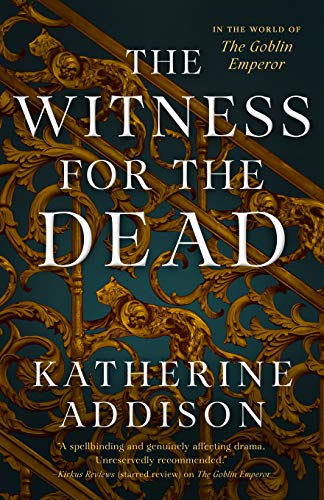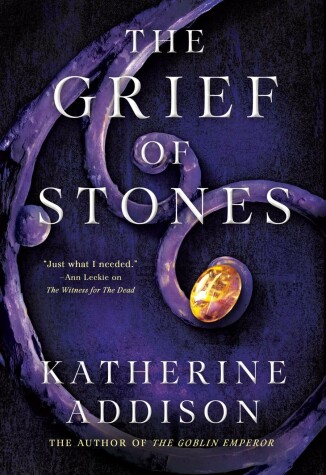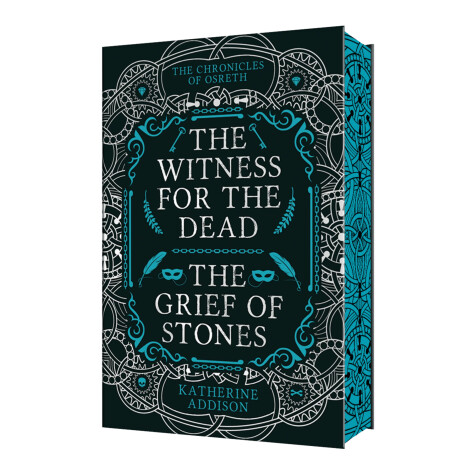The Cemeteries of Amalo
2 primary works • 3 total works
Book 1
Katherine Addison returns at last to the world of The Goblin Emperor with this stand-alone sequel.
When the young half-goblin emperor Maia sought to learn who had killed his father and half-brothers, he turned to an obscure resident of his Court, a Prelate of Ulis and a Witness for the Dead. Thara Celehar found the truth, though it did him no good to discover it.
Now Celehar lives in the city of Amalo, far from the Court though not exactly in exile. He has not escaped from politics, but his position gives him the ability to serve the common people of the city, which is his preference. He lives modestly, but his decency and fundamental honesty will not permit him to live quietly.
Book 2
In The Grief of Stones, Katherine Addison returns to the world of The Goblin Emperor with a direct sequel to The Witness For The Dead...
Celehar’s life as the Witness for the Dead of Amalo grows less isolated as his circle of friends grows larger. He has been given an apprentice to teach, and he has stumbled over a scandal of the city—the foundling girls. Orphans with no family to claim them and no funds to buy an apprenticeship. Foundling boys go to the Prelacies; foundling girls are sold into service, or worse.
At once touching and shattering, Celehar’s witnessing for one of these girls will lead him into the depths of his own losses.
The love of his friends will lead him out again.
Books 1-2
The Witness For The Dead
When the young half-goblin emperor Maia sought to learn who had set the bombs that killed his father and half-brothers, he turned to an obscure resident of his father’s Court, a Prelate of Ulis and a Witness for the Dead. Thara Celehar found the truth, though it did him no good to discover it. He lost his place as a retainer of his cousin the former Empress, and made far too many enemies among the many factions vying for power in the new Court. The favor of the Emperor is a dangerous coin.
Now Celehar lives in the city of Amalo, far from the Court though not exactly in exile. He has not escaped from politics, but his position gives him the ability to serve the common people of the city, which is his preference. He lives modestly, but his decency and fundamental honestly will not permit him to live quietly. As a Witness for the Dead, he can, sometimes, speak to the recently dead: see the last thing they saw, know the last thought they had, experience the last thing they felt. It is his duty use that ability to resolve disputes, to ascertain the intent of the dead, to find the killers of the murdered.
Now Celehar’s skills lead him out of the quiet and into a morass of treachery, murder, and injustice. No matter his own background with the imperial house, Celehar will stand with the commoners, and possibly find a light in the darkness.
The Grief Of Stones
Celehar’s life as the Witness for the Dead of Amalo grows less isolated as his circle of friends grows larger. He has been given an apprentice to teach, and he has stumbled over a scandal of the city—the foundling girls. Orphans with no family to claim them and no funds to buy an apprenticeship. Foundling boys go to the Prelacies; foundling girls are sold into service, or worse.
At once touching and shattering, Celehar’s witnessing for one of these girls will lead him into the depths of his own losses. The love of his friends will lead him out again.


